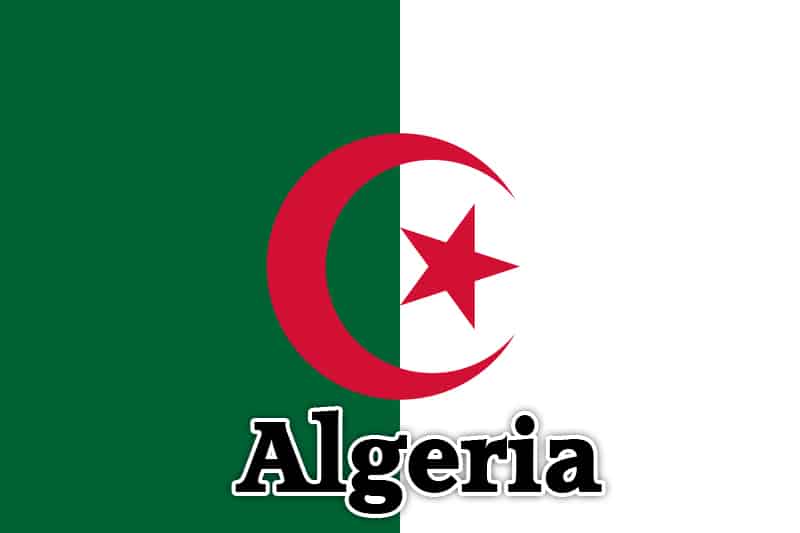Metro
A Brief History of Algeria and Its Founding

History of Algeria
Ancient times
Algeria was inhabited by various indigenous peoples, such as the Berbers, who spoke their own languages and had their own cultures.
Algeria was colonized by the Phoenicians, who founded the city of Algiers and other coastal settlements.
Algeria was later ruled by the Carthaginians, the Romans, the Vandals, and the Byzantines.
Algeria was invaded by the Arabs in the 7th century CE, who brought Islam and Arabic to the region.
Algeria was part of various Arab-Amazigh dynasties, such as the Aghlabids, the Fatimids, the Zirids, the Almoravids, and the Almohads.
Ottoman period
Algeria became part of the Ottoman Empire in the 16th century, under the rule of local governors called deys.
Algeria was an important state in the Mediterranean Sea, which led to many naval conflicts with European powers.
Algeria was also a center of piracy and slave trade, which provoked resentment and retaliation from other countries.
French colonization
France invaded Algeria in 1830 after a diplomatic dispute over a debt and a fly whisk.
France saw Algeria as a source of raw materials, land, and prestige. It took France decades to subdue the Algerian resistance, led by various local leaders and nationalist movements.
In 1848, France declared Algeria a territory of France, divided into departments and governed by a French governor-general.
Algeria became a destination for hundreds of thousands of European immigrants known as colons or pieds-noirs, who enjoyed privileges over the native population.
Algeria faced discrimination, oppression, and assimilation policies from the French authorities.
Algerian independence
Algeria fought for its independence from 1954 to 1962, in a bloody war that claimed millions of lives.
The war was led by the National Liberation Front (FLN), which used guerrilla tactics and terrorism against the French army and civilians.
The war also sparked a civil war among different factions in Algeria, such as the pro-French colons, the pro-independence Muslims, and the neutralists.
The war ended with the Evian Accords in 1962, which granted Algeria sovereignty and recognized the rights of the colons to stay or leave.
Algeria became an independent republic on July 5th, 1962.
Algeria was inhabited by various indigenous peoples, such as the Capsian culture, the Berbers, the Phoenicians, the Romans, the Vandals, and the Byzantines. The first known kingdom in Algeria was Numidia, founded by the Berber king Massinissa in the 3rd century BC. Numidia was later divided and conquered by the Romans, who made it a province of their empire. After the fall of the Roman Empire, Algeria was invaded by various Arab and Muslim dynasties, such as the Umayyads, the Abbasids, the Fatimids, the Zirids, the Almoravids, the Almohads, the Hafsids, and the Zayyanids.
See population, official language and more…

Algeria
Ottoman Algeria
In 1516, Algeria was conquered by the Ottoman Empire, which ruled it through local governors called deys. The Ottomans established Algiers as their main port and naval base in North Africa. Algeria became an important state in the Mediterranean sea, which led to many naval conflicts with European powers, such as Spain, France, and Britain. The Ottoman rule in Algeria was weakened by internal strife, corruption, and rebellions. In 1830, France invaded Algeria after a diplomatic dispute over a debt and a fly whisk.
French Algeria
It took France decades to subdue the Algerian resistance, led by various local leaders and nationalist movements. In 1848, France declared Algeria a territory of France, divided into departments and governed by a French governor-general. Algeria became a destination for hundreds of thousands of European immigrants known as colons or pieds-noirs, who settled on fertile lands and exploited the natural resources of the country. The Algerian population suffered from discrimination, oppression, and exploitation under French colonial rule. They were denied citizenship, political rights, land ownership, and cultural identity. Algeria fought for its independence from 1954 to 1962, in a bloody war that claimed millions of lives. The war was marked by guerrilla warfare, terrorism, torture, massacres, and atrocities on both sides. In 1962, France recognized Algeria’s independence after a referendum. The new Algerian state was led by the National Liberation Front (FLN), which had been the main nationalist movement during the war.
Modern Algeria
Since its independence, Algeria has faced many challenges and crises, such as political instability, military coups, civil war, economic problems, social unrest, corruption, human rights violations, and terrorism. Algeria is currently a constitutional republic with a president as head of state and a prime minister as head of government. The FLN is still the dominant political party in the country. Algeria is also a member of various regional and international organizations, such as the Arab League, the African Union, the Organization of Islamic Cooperation (OIC), and the United Nations (UN).





